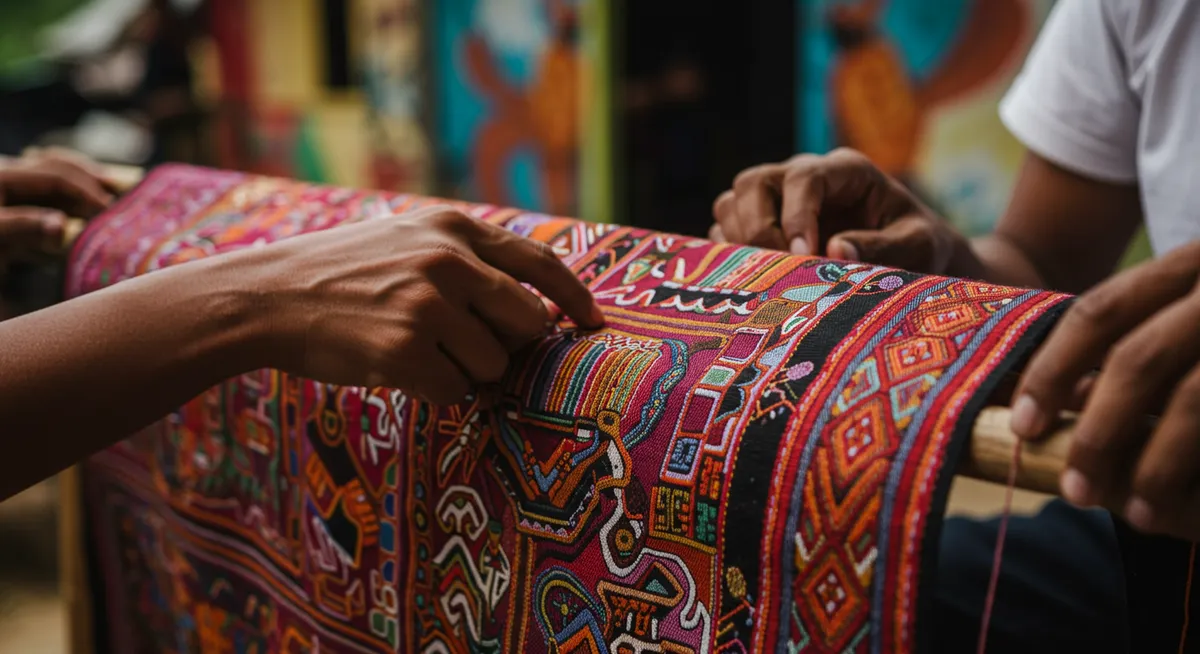
East Timor Traditional Crafts in Dili
Table of Contents
Want to find the best travel deals for this destination? Chat with our travel hacking specialist!
Get Travel HacksCategory: east-timor-traditional-crafts-dili
Unveiling Dili's Rich Tapestry of Traditional Arts
From my extensive travels exploring Southeast Asian cultures, I've consistently found that traditional crafts offer a profound window into a nation's soul. In Dili, East Timor, this holds especially true. The vibrant artistry here, deeply rooted in history and community, provides an exceptional opportunity to connect with the local heritage. This guide will help you navigate the fascinating world of East Timor traditional crafts, focusing on the unique pieces you can find in Dili and how to appreciate their cultural significance. Enhance your Dili experience with our Dili itinerary. Explore local secrets with our Dili hidden gems.
The Heart of Timorese Culture: What are East Timor Traditional Crafts?
East Timor traditional crafts are more than just beautiful objects; they are living expressions of the nation's identity, resilience, and spiritual beliefs. For centuries, these artisanal creations have been integral to daily life, ceremonies, and storytelling. While various forms exist, the iconic Tais woven fabric stands as the undisputed centerpiece of Timorese artistry. Beyond Tais, you'll discover intricate pottery, detailed wood carvings, and delicate basketry, each telling a unique story of local traditions. Understanding these crafts offers a deeper appreciation for the country's rich cultural heritage. I always recommend observing the patience and skill involved in their creation. Discover authentic experiences with our Dili hidden gems. Enhance your Dili experience with our Dili nature guide.
Tais: More Than Just Fabric – A National Treasure
Tais is unequivocally the most renowned of East Timor traditional crafts, a UNESCO-recognised cultural heritage. These hand-woven textiles are not merely garments; they are central to ceremonial exchanges, rites of passage, and symbols of status and identity. Each intricate pattern, color, and motif embedded in a Tais carries ancestral meaning, often specific to a particular region or family. You'll find different forms, from ceremonial mantles (Tais feto for women, Tais mane for men) to practical everyday items. The laborious process involves spinning cotton, natural dyeing, and complex weaving on backstrap looms. The traditional markets in Dili are excellent places to witness the beauty of Tais. Enhance your Dili experience with our Dili itinerary.
Beyond Tais: Exploring Other Timorese Artisanal Creations
While Tais commands significant attention, Dili's craft scene offers a delightful array of other artisanal creations. Look for beautifully crafted pottery, often featuring traditional designs and earthy tones, primarily from the Lautem district. Wood carvings, usually depicting local fauna, mythical figures, or traditional houses, showcase incredible attention to detail. Basketry, made from natural fibers like palm leaves, ranges from utilitarian items to decorative pieces. Jewellery, fashioned from shells, beads, and coconut shells, also reflects local aesthetics. Exploring these diverse hidden gems in Dili provides a comprehensive view of the country's artistic depth beyond its famous textiles.
Where to Find Authentic Crafts in Dili
Locating authentic East Timor traditional crafts in Dili is part of the adventure. The primary destination for Tais is the Tais Market (Mercado do Tais), a vibrant hub where various weavers and cooperatives display their work. Beyond Tais, you can explore smaller artisanal shops and dedicated craft centers, especially those supporting women's cooperatives, which ensure fair prices for the artisans. For a truly immersive cultural experience, consider pairing your craft discovery with a Dili local food tour, as many markets often combine both. Always look for signs of handcrafting—slight imperfections often indicate authenticity.
Ethical Buying & Preserving Timorese Heritage
When purchasing East Timor traditional crafts, adopting an ethical approach is crucial. This means buying directly from artisans or cooperatives whenever possible, which ensures your money directly supports the craftspeople and their communities. Bargaining is common, but approach it respectfully, understanding the immense effort behind each piece. Avoid mass-produced imitations and prioritize genuine, handcrafted items. By making conscious choices, you contribute to the preservation of Timorese cultural heritage and empower local artists. To fully appreciate the locale, consider exploring all aspects of this secret locale, from its people to its traditions.
Frequently Asked Questions
What is the most famous East Timor traditional craft?
Where is the best place to buy Tais in Dili?
Are there craft workshops available for tourists in Dili?
Exploring East Timor traditional crafts in Dili is a journey into the heart of a resilient and vibrant culture. From the intricate threads of Tais to the earthy textures of pottery, each piece tells a unique story of heritage and artistry. By seeking out authentic items and supporting local artisans, you're not just acquiring a souvenir; you're contributing directly to the preservation of invaluable traditions. We encourage you to delve deeper into Dili's craft scene, appreciate the skill involved, and take home a piece of East Timor's soul. For more unique cultural experiences in the region, continue exploring our site.